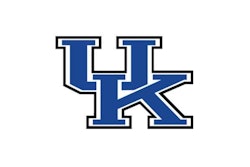Copyright 2017 Paddock Publications, Inc.
Chicago Daily Herald
While news of the Big Ten's massive new media rights deals with CBS, Fox and ESPN trickled out more than a year ago, Commissioner Jim Delany had balked at a formal announcement for nearly 13 months.
Delany finally acknowledged the inevitable Monday, announcing the league's six-year partnerships with the three networks. "We really have labored in bringing our agreements to maturity," he said.
While Delany did not discuss figures of the deal - SportsBusiness Journal first reported last June that the agreement is worth $2.64 billion - he did trumpet the announcement as a formal step forward for his conference.
The Big Ten will partner with Fox and ESPN to broadcast football games, while CBS will hold basketball-only rights.
"We couldn't be more pleased. We've been with ESPN since its inception in 1979 and dealing with ABC all the way back to 1966," Delany said. "With regard to Fox, they're our joint venture partner, and Larry and I worked together on the back of a napkin to vision out BTN, and it has been a fabulous and successful ride."
Delany also said that the Big Ten Network's contract with the conference will run through 2032. The Big Ten Network's president, Mark Silverman, said his platform would expand ahead of this season by joining YouTube TV and Hulu for the first time.
"Regardless of how the industry evolves, BTN will be committed to be available to all our viewers across the country," Silverman said.
A year ago, when Delany suggested he may retire by the time the new television-rights deal expires, he hinted that the league's new media rights deal would last for six years but declined to elaborate.
On Monday, Delany explained the delay shortly after allowing Larry Jones, Fox's executive vice president, and Burke Magnus, ESPN's executive vice president, to offer a few remarks on the deal.
"The selection process on the content is, I wouldn't say tricky, but sensitive. And so as you move through discussions to achieve an agreement, any change in one area requires you to go back to others," Delany said.
"And so it's really just the elongation of getting the Ts crossed and the I's dotted that has taken longer than we had anticipated."
The commissioner noted there has been "pushback" on the league's plan to schedule Friday night games.
The league's new media rights deal requires that the Big Ten will play six Friday night games over the next six seasons, but most schools have voiced displeasure with the new scheduling move.
"We've worked to mitigate by very early selections. I think you'll see selections probably in October preceding the season, No. 1. And No. 2, to work with the high school athletic executive directors to mitigate," Delany said.
He also touched on the league's policy on teams scheduling games against Football Championship Series teams.
Just two years ago, the league unveiled a slew of new scheduling wrinkles; it moved its conference schedule from eight to nine games, required schools to schedule at least one Power Five school in nonconference play and prohibited all future scheduling of FCS opponents.
But Delany said Monday that the league will allow schools to schedule FCS opponents during seasons in which those schools only have four home games in conference play.
"Now, after watching things play out over the last three years, we noted that we were the only conference to go totally in that direction. We have never really gotten there because we had long existing contracts," Delany said. "When we went to nine games, we did not anticipate the problems that some of our schools would have in years that they only had four conference home games - it was very difficult for them to get three FBS opponents on to their schedules if they were looking for seven home games. So we have modified it."
Read More of Today's AB Headlines
Subscribe to Our Daily E-Newsletter
Terms and Conditions Privacy Policy



































